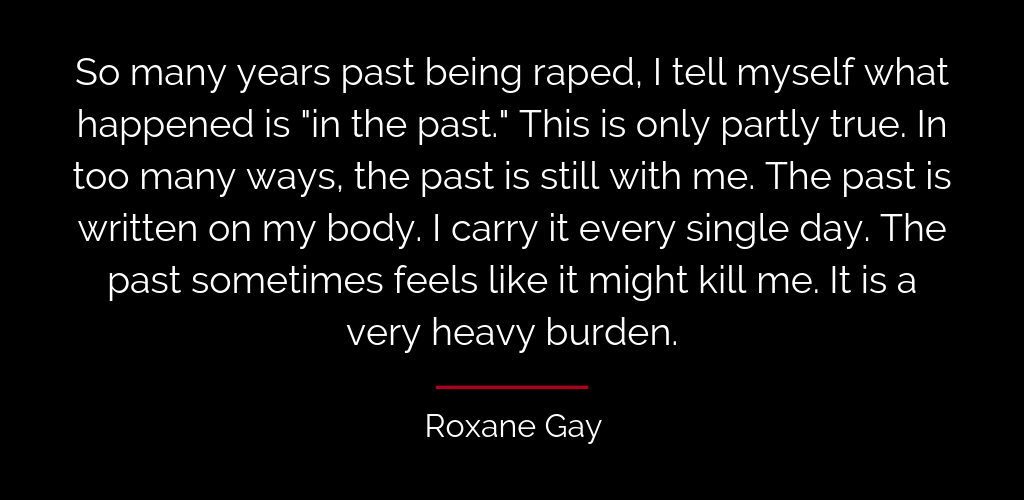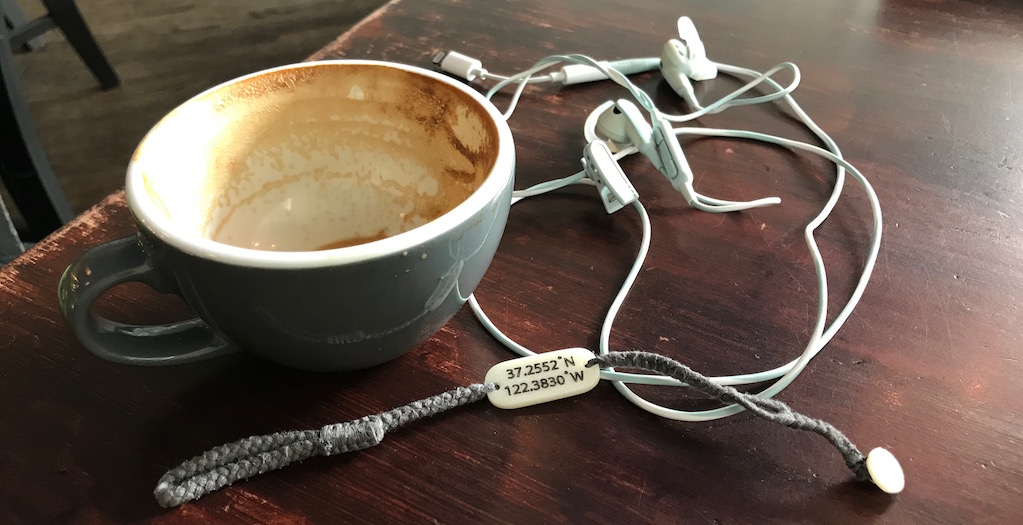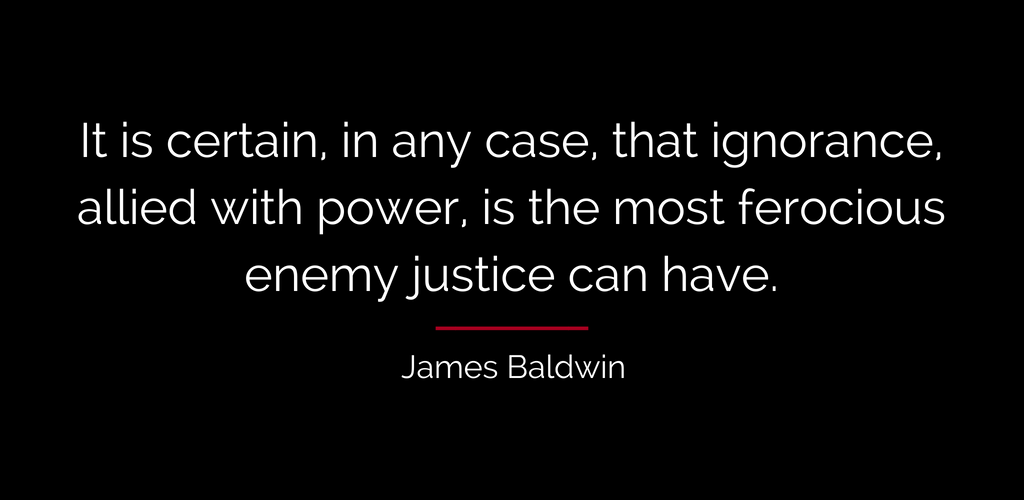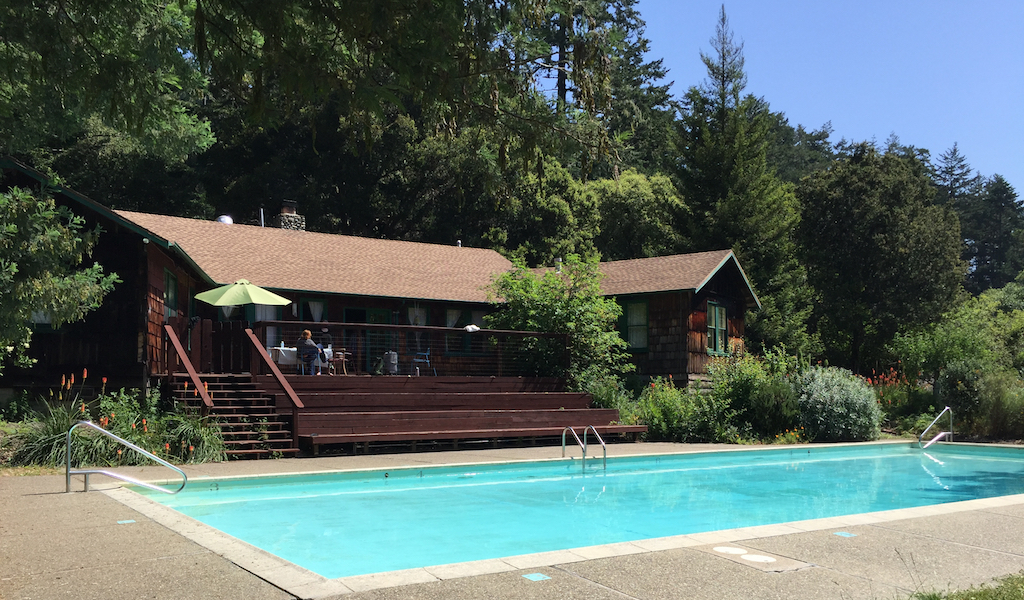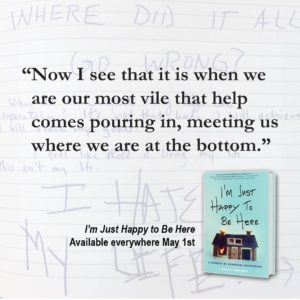Much has been written this week about Brett Kavanaugh’s attempted rape of Christine Blasey Ford. Rather than add my political and social analysis to the pile of others, I decided to tell my story of how the trauma of sexual assault feels in the mind and in the body. How it can make some details bright and clear and obscure others—then and now. How the memory can return, unannounced and uninvited, and make you relive what you have tried so hard to forget. How it never goes away, but lives in your muscles and bones.
***
I was coming in from gym class. The girls spent most of their time walking laps around the track because not even the teacher believed gym class was important. We all had to wear these ridiculous black athletic shorts and white t-shirts with Berry High School printed on the front in orange letters. We must have looked like a line of adolescent handmaids coming back our mandatory daily stroll. For some reason we had to return to the locker room through the side door of the gymnasium. I can’t remember where the locker room was, so I’m not clear on why that was the route, only that it was the route.
Because this was one of those multipurpose gymnasiums that was also used for plays and assemblies, the door took you through a narrow, dark hallway at the side of the stage. As I was making my way through that small hallway toward the next door that led into the gymnasium, an arm reached out from the darkness of stage left, grabbed me around the waist, and pulled me backstage. I wrestled myself free long enough to spin around to see two boys I knew marginally well. I thought of them as friends of a sort. They should have been in gym class, but I noticed they were still wearing their standard uniform of jeans and black t-shirts. Before I could ask them what the hell they were doing, Steve* pushed me backwards onto a long folding table, the kind that was used to hold props during a play. Bill* then jumped onto the back of the table above my head, grabbed my arms at the wrists, and pulled them above my head. Steve was laughing. In the darkness I could only feel what was happening as he tried to put one hand up my shirt while putting the other into the waistband of those stupid gym shorts I would hate even more after this.
I managed a scream. I don’t know if I actually said words, but into the darkness floated a girl’s voice.
“Carrie? Is that you?”
Immediately, the boys jumped up and ran out the door I had entered only minutes ago. I scrambled to my feet and ran through the doorway into the gym. There was Karen*, standing at center court.
“What were you doing back there?” she asked.
“Nothing,” I replied. “Just Steve and Bill being stupid. Why are you still here?”
“I stopped to tie my shoe.”
To tie her shoe. That day my fate depended on a loose shoe lace. Nothing else was protecting me from becoming a backstage prop in The Game of Life: Rape Culture Edition.
I know I really shouldn’t write about this. At least that’s what I learned. I repeated the lesson to myself over and over again. It was nothing. Nothing happened. It was only a minute of my life. How could it matter? After all these years, years in which I think of it while washing dishes, weeding the garden, cleaning the bathroom. In moments where there is nothing else to think, it’s there. Filling up the space with its emptiness. How heavy this nothing can feel in my chest as I stand at the sink holding a plate tightly for fear it will fall into the water and break. I watch the suds slide off the surface into the sink. I breath in again. Try to shake it off as I did that day in the gym. “Nothing,” I say to no one.
I feel silly, overly dramatic for even thinking of it. For allowing this nothing to matter after all these years. Everyone else has forgotten this nothing, which I realize now was me. The girl who told her friend it was nothing, who changed her clothes and went to French class, not remembering how she got from the gym to the trailers out back where they put expendable classes like mine. After that, I always got lost on the way to French class. The sidewalk leading to the back of the school was so long and all the trailers looked the same—blindingly white in the hot Alabama sun. Even today I can’t remember how I got from the track to the gym door, or to the locker room after I rejoined Karen, or from the locker room to French. The trauma becomes a focal point blotting out everything on the periphery. Before and after become irrelevant. My mind is highjacked at the sink. Another minute of my life, gone. I am backstage again. Struggling to free my arms. To scream. To save my life. Once I am back in the gym with Kelly I realize how tightly I am holding the plate. So tight I fear it might break under the pressure. I release my grip and notice my neck is stiff again. Maybe it’s all the time I spend at the computer. I’ll get a new desk chair and a massage. Maybe then the pain will go away.
*names have been changed
